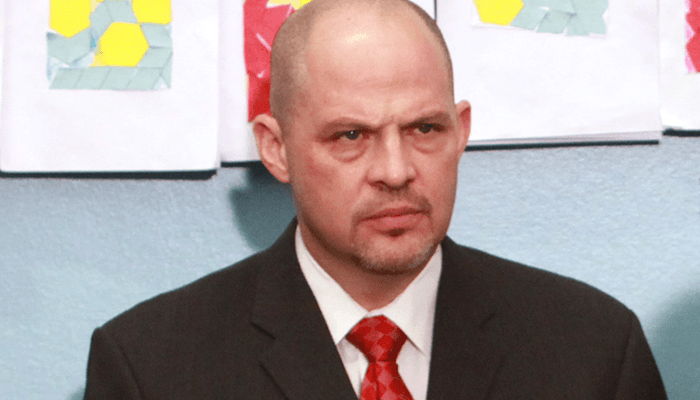Oh, how times have changed.
Five years ago, the New York Times praised Randi Weingarten and the American Federation of Teachers for working with state legislatures in “developing more effective teacher evaluation systems and speeding up the glacial pace of disciplinary hearings for teachers charged with misconduct.” In an editorial the Times stated:
“The unions and state legislatures also need to press forward on developing evaluation systems that take student performance into account and that allow school systems to reward excellent teaching while steering ineffective teachers out of the field…Ms. Weingarten has shown strong leadership in this area, and is well ahead of the National Education Association, the nation’s largest teachers’ union.”
Back then, it looked as if AFT was finally willing to embrace a more rational approach to teacher evaluation, one that moved beyond pro-forma annual performance reviews in which nearly all teachers were judged “satisfactory.” But the rapprochement was short-lived. Instead, the union has spent the intervening period systematically trying to undermine teacher evaluations with every means at their disposal, and they have succeeded in many respects, as recent developments in Los Angeles and Washington, D.C. illustrate.
I. UTLA Whittles Away Evaluations in L.A.
Last week, the board of the Los Angeles Unified School District (LAUSD) approved an agreement with the United Teachers of Los Angeles (UTLA) to overhaul the district’s teacher evaluation process.
The agreement represents a significant victory for UTLA, an affiliate of AFT, which has spent the past several years battling with the district over evaluations, particularly around the use of student achievement data in those performance reviews.
Why? Because it also represents a significant step backwards on accountability. For example, although the agreement states that evaluations should “encourage a career long growth of educator development and support,” teachers with more than 10 years of classroom experience will now be evaluated only once every three to five years.

Under the new system, the evaluation process itself is now limited to one formal evaluation over the course of the school year and teachers will be assessed on just 7 of the 15 “performance focus elements” the district has established for evaluations.

Furthermore, the new process fails to address the most important question to ask when evaluating a teacher: Are children actually learning anything in their class? Student test scores play no direct role in the new evaluation system. In fact, student performance is only tangentially incorporated in the process via performance objectives established for each teacher at the beginning of the school year. Although teachers are evaluated on their success in reaching those performance objectives, they must be mutually agreed upon by both teacher and evaluator. Plus, a clause in the agreement allows teachers or evaluators to “move the goalposts” by modifying those performance objectives at any point during the school year.

When taken together, the changes agreed upon by LAUSD board members have given UTLA and AFT what they always really wanted: A toothless evaluation system that makes it all-but-impossible to identify high-performers or get rid of ineffective teachers.
II. Using Due Process to Defeat Evaluations in DCPS
Earlier this spring, Washington Teachers Union (WTU) and American Federation of Teachers (AFT) celebrated what they considered to be a great victory: an arbitrator ruled that District of Columbia Public Schools (DCPS) must rehire Thomas O’Rourke, a high school teacher fired in 2011 after receiving an unsatisfactory score on IMPACT, the district’s evaluation system.

Following his termination, O’Rourke filed a grievance claiming that the principal who conducted his evaluation had a vendetta against him due to his membership in the teachers union. He also asserted that the principal failed to follow IMPACT evaluation protocol.
In his decision, arbitrator Charles Feigenbaum found no evidence of bias on the the part of the principal, nor did he make any determination as to O’Rourke’s effectiveness as a teacher. Instead, Feigenbaum ruled that DCPS must reinstate O’Rourke because his principal violated IMPACT rules by observing his classroom for eighty minutes, rather than the requisite thirty. In short, O’Rourke won on a technicality and a bullsh-t one, at that.1
Nevertheless, union leaders were elated by the decision. In an AFT press release entitled, “AFT, WTU Applauds Decision on IMPACT,” WTU president Elizabeth Davis said:
“This decision upholds our long-held grave concerns about the IMPACT teacher evaluation system. A teacher’s life was turned upside down because, without adhering to the process, IMPACT inappropriately determined the teacher should be terminated.”
AFT president Randi Weingarten joined in the cheerleading on Twitter, touting the arbitration decision as an achievement.
DC's IMPACT system doesn't help educators or students. Hopefully this will start to turn the page https://t.co/S0dCfEn7ju
— Randi Weingarten (@rweingarten) April 6, 2016
Davis and Weingarten’s statements seem to imply that the district’s IMPACT evaluation system was somehow foisted on teachers without any input from the unions. But that’s a hard case to make seeing that IMPACT evaluations form the basis of several key elements in WTU’s contract with DCPS, which AFT helped negotiate and over 80% of WTU members ratified in May 2010.
At the time, Weingarten heralded the contract, saying:
“No one — not parents and not teachers — wants the status quo. This agreement used collective bargaining as a vehicle for change, to create a path to school improvement and student success…[T]he WTU and DCPS worked through their differences at the negotiating table and reached an agreement that will be good for kids and fair to teachers.”
But before ink was even dry on the contract, the union was once again attacking DCPS’ performance reviews. By July 2010, WTU’s president was publicly threatening to appeal every one of the district’s dismissal decisions, telling the Washington Times that, “D.C. Public Schools has yet again found a subjective way to fire teachers, many of whom were not evaluated fairly.”
Speaking of fairness, if AFT was truly “A Union of Professionals,” as their motto claims, they would be embarrassed by the arbitration decision, not jubilant. After all, it defies logic to suggest that O’Rourke’s evaluation was somehow less fair or less accurate because his principal spent more time observing his class.2 Sadly, Weingarten and Davis’ reactions make clear they’re unconcerned about whether or not O’Rourke is an effective teacher.
III. Gumming up the works rather than making evaluations work
Of course, AFT’s attempts to hamstring evaluations in Los Angeles and D.C. are just two examples of a broader push by the union to ensure that their members’ jobs are protected at all costs. Although AFT leaders insist they want a “fair, transparent and expedient process to remove ineffective teachers from the classroom,” their actions say otherwise.
Sometimes, they even admit as much, albeit accidentally. Back in 2014, Chalkbeat obtained a secret recording of Michael Mulgrew, president of the United Federation of Teachers in New York, admitting that UFT lobbied for a complex evaluation model because “it would give teachers more points to contest if they received poor ratings.” On the recording, Mulgrew is heard telling a meeting of UFT’s Delegate Assembly:
“It was a strategy decision to gum up the works because we knew what their lawyers were trying to do. That’s things I don’t get to say in public when I’m doing them, because we knew they had a plan to use the new evaluation system to go after people…We had a goal that this year would be the first and only year you would work under the new evaluation system.”

While reasonable people on both sides of the education debate can agree that teachers need protection from arbitrary and capricious firings, AFT’s tactics – in L.A., D.C., and elsewhere – show that the union has no intention of supporting reasonable efforts to ensure every child has an effective teacher. As Mulgrew said, AFT would rather just “gum up the works.”
- This isn’t the first time Feigenbaum sided with teachers dismissed by DCPS. In 2008, Feigenbaum ordered the district to reinstate 75 teachers fired for dereliction of duty and incompentence, prompting an outraged editorial from the Washington Post ↩
- In a revealing interview with O’Rourke, Kavitha Cardoza of WAMU pointed out that, “the scores you got from the principal were very similar to the scores you got from the two external master educators,” and asked, “have you ever considered that maybe you aren’t an effective teacher or you aren’t a teacher with the skills necessary for what the system needs now?” ↩


9 Comments
Leave a Reply